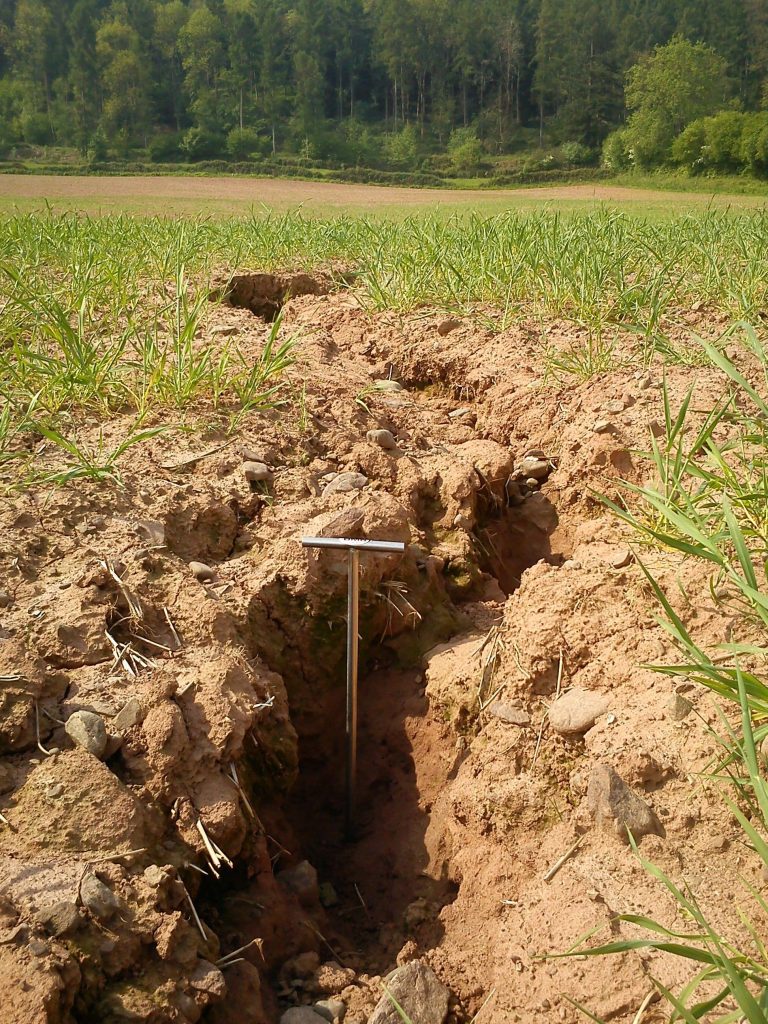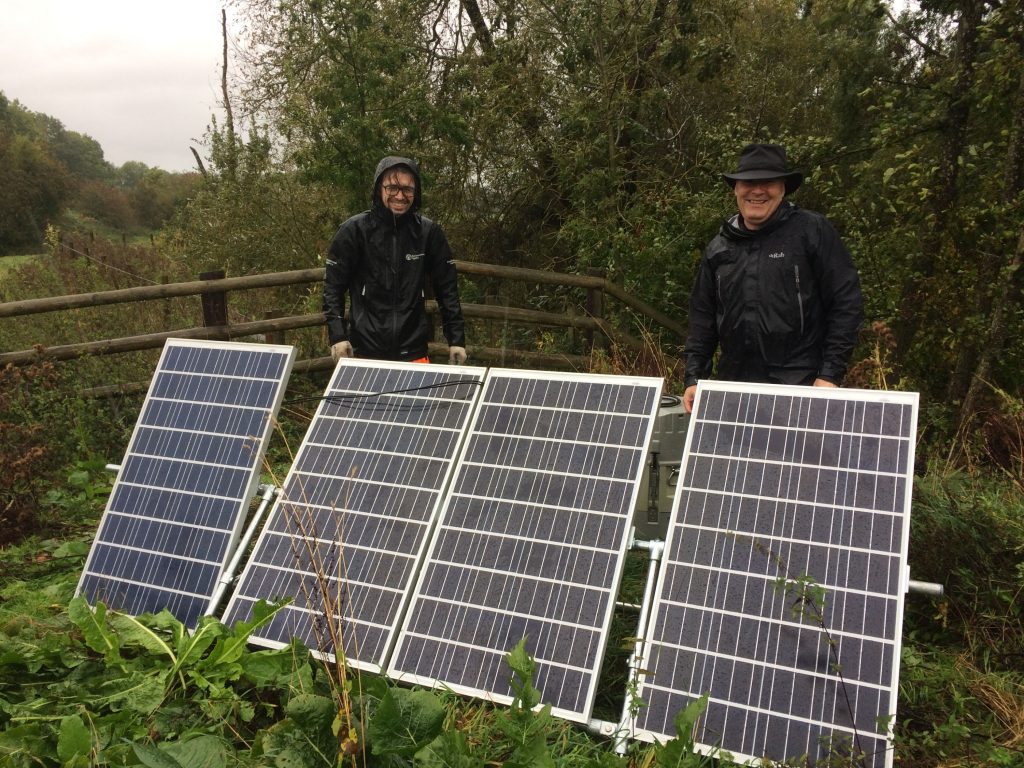Gaining the support of farmers is crucial for our Catchment Advisors. It is the first step in ensuring that any measures they recommend to improve rivers are taken up.
For the best chance of this happening, anything we recommend needs to benefit the farmer’s business too.
Frequently, we are asked how much a measure such as fencing off a stream to livestock will add to the bottom line of a farm business. Being able to answer this enhances our powers of persuasion!
If we can say “you can save £x by doing y”, it is much easier for us to convince farmers to adopt different practices that are beneficial to river ecology.

BUNS
In 2018 we launched a new project devised specifically to do this.
Better Utilising Nutrients (or BUNS), finally started on a wet and windy day in October. The first job was for our project partners the Environment Agency to install monitoring equipment in the lower reaches of the River Lugg.
This major Wye tributary used to record some of the highest phosphate levels in the country. Its water quality has improved in recent years though following a number of Foundation-led projects to improve farming practices in this catchment.

Real-time data
Powered by solar panels, the new sensors will give us real-time recordings for up to a year. They will provide us with information on ammonia, temperature, sediment levels and dissolved oxygen variations. In addition to a much better understanding of the current situation in the Lugg, the data will also be used to assess the quantities of nutrients and sediment being transported via the whole river network.
This will add an important tool to the farm advisory service of the Foundation and other rivers trusts across the country.
We look forward to sharing more of this project’s findings and progress over the coming year.
The Foundation is extremely grateful to John Oldacre Foundation and to our partners the EA for their expertise.
